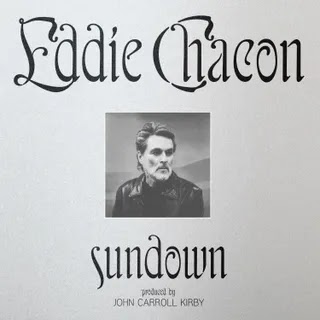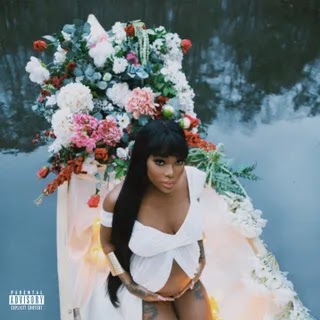On his melodious debut album, the pop-rap icon flaunts his verve and star power, all while a sense of isolation lives at the music’s brighter edges.
At the start, Lil Nas X courted controversy by accident. The Atlanta native seized the world’s attention in 2019 with the country-rap juggernaut “Old Town Road,” which country zealots tried to exile from the charts. Nas’ success (and the several, increasingly bizarre remixes) made the complaints moot: After 19 stunning weeks, it took Billie Eilish, another burgeoning pop phenom, to finally dethrone him, and Nas’ song remains Billboard’s longest-running No. 1. He put out a stopgap EP that didn’t move the needle for him as an artist or a viral celebrity, and found himself in an awkward spot: Country and rap devotees both had him marked as a gimmick.
The whiplash between public attacks and chart-topping success took its toll, especially after Nas came out while “Old Town Road” was still No. 1. Now he was a Black queer man deciding to fully express himself through his music, which made him an easy target for bigots who only knew him through his kid-friendly first single (“i am not gonna spend my entire career trying to cater to your children,” he succinctly replied. “that is your job.”). Having just exposed the racialized gatekeeping on Billboard’s charts, now he was airing out everyone’s homophobic laundry, too.
On his debut album, MONTERO, the country’s most popular gay pop-rap star is quick to let you into this roiling headspace. Nas maneuvers through different genres in an attempt to unload some of his heavier baggage: A fractured family life and lingering self-doubt from spending most of his years in the closet weigh on the 22-year-old’s mind. He wants you to know he’s been smoking himself to sleep. Even when he’s singing to the rafters, he’s sad as hell.
It’s a jarring perspective to take for one of the most hyped debuts of the year. The rollout for MONTERO was a lesson in irreverent marketing made entirely on Nas’ terms, this time with the controversy courted by design: giving Satan a lapdance in a big-budget music video for the title track that ignited delight from queer fans and fury from conservatives; making out with a male backup dancer during a performance at the BET Awards that stoked more of the same from those crowds for obvious reasons; then, finally, a telegenic spread in People magazine announcing his “pregnancy” with the album that—well, you get it.
All of the tongue-in-cheek promo leads us to MONTERO, titled after the artist’s given name, Montero Lamar Hill. Over polished production largely handled by regular collaborators Take a Daytrip, Lil Nas X flaunts his verve and star power alongside some of the biggest names in pop, all while that sense of isolation lives at the music’s brighter edges. For an artist capable of gleefully reducing online trolls to dust with a single tweet, his anguish is revealing though not altogether surprising. Lil Nas X has discussed his struggles living in the public eye before. “The idea of ‘He’s a cool gay person; he’s an acceptable gay person,’ I used to see things like that as a compliment, but it’s not,” he told Variety. “I wanted to be even more authentic in my music and let people into my life.” MONTERO pries open that door through angsty pop-punk, introspective guitar ballads, and brash pop-rap, making for a mostly filler-free, engaging album that doesn’t seem to reveal the true soul of Lil Nas X, but certainly comes close.
MONTERO’s first half is the victory lap, loud with pep-rally pop built on blaring horns, 808s, and boasts. Even more than the Kanye-co-produced “Industry Baby,” the vivid “Dead Right Now” evokes West’s widescreen vision, as Nas offers up an origin story with a hard-nosed chorus: “You know, you never used to call/Keep it that way now/I’ll treat you like you dead right now.” The enthusiasm starts to grate by “That’s What I Want,” a yearning pop-rock song and clear successor to “Hey Ya!” with a similar call-and-response hook that instantly and regrettably brings T-shirt launchers to mind.
Yet Lil Nas X’s lyrical confidence is a noticeable and welcome upgrade from 2019’s halfhearted 7 EP. On “Scoop,” featuring Doja Cat, he snarls come-ons that honor his former life as a card-carrying Barb: “I ain’t talkin’ guns when I ask where your dick at.” When so many mainstream pop stars still rely on euphemisms for gay sex, it’s a joy to hear Nas openly embrace it. The brisk title track remains one of his best, with flamenco-tinged guitar loops and throbbing bass as the bedrock for Nas’ frank exploration of gay desire. “I want that jet lag from fuckin’ and flyin’,” he demands, adding a dash of menace to his charm. “Shoot a child in your mouth while I’m ridin’.”
The album’s more contemplative moments shift his point of view into a darker, death-driven focus. The brooding pop-punk highlight “Lost in the Citadel,” focusing on a toxic relationship he can’t help but return to, bridges the gap between the all-out pop songs and the guitar-focused second half. He tackles growing up in a broken home on the deceptively upbeat “Tales of Dominica” before things get bleak on “Void,” when he hits a low point over grungy, strummed guitar. “I’d rather die than to live with these feelings,” he confesses, “Stuck in this world where there’s so much to prove.” The pressure those expectations have on Nas can make MONTERO feel a little confined, but in his vulnerable performance and lyrics, it allows you to become more invested in Nas the person rather than the celebrity.
That approach—and the album’s brisk sequencing—also makes the more sentimental songs go down easier. “One of Me,” in which he gives voice to his bloodthirsty inner critic (“Even if your album OK, it’s flopping, that’s a promise,” he growls), keeps things light with a gentle beat and Elton John’s subtle piano, a moment that feels like a brief passing of the torch from another gay icon who’s no stranger to controversy. “Sun Goes Down,” a letter of support to Nas’ high school self (and, by proxy, the thousands upon thousands of queer kids who will listen to this album), is also an affecting ballad by the time it shows up toward the end. “I know that you want to cry,” he sings over 2000s-nodding, percussive acoustic guitar, “But there’s much more to life than dying.”
The hopeful ending is in line with Nas’ vision—this is the same guy who made a supercut of his videos in the garish style of Marvel movies, after all. Yet even with occasional missteps, the album fulfills the promise of a new kind of pop star: an out, Black rapper and singer who combines his omnivorous, genre-hopping music, forthright lyrics, and social media savvy to triumph in an industry that threatened his authenticity from the jump. His music is still radio-primed to work well beside Olivia Rodrigo’s pop-punk or Doja’s earworm rap, but he’s using both his music and celebrity to carve out a unique space explicitly for queer people who feel as alone as he did growing up and emphatically insisting on a better future. With MONTERO, he’s already building it for them.
















0 comments:
Post a Comment